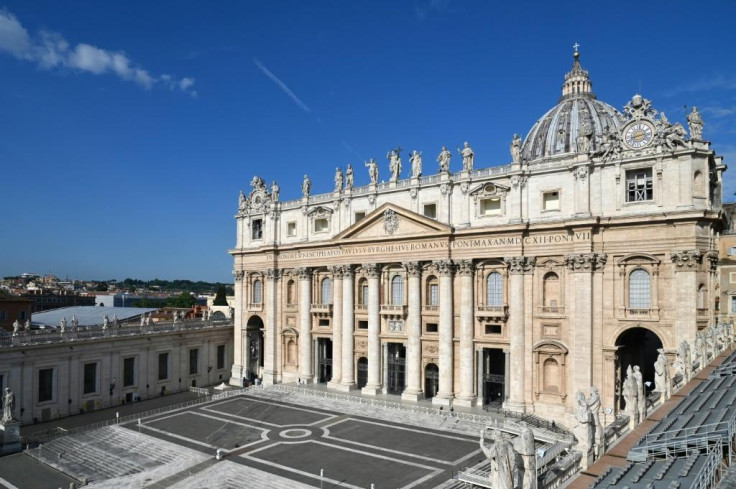Vatican in 'unprecedented' challenge to Italy homophobia law
The Vatican continues to defend marriage as being between a man and a woman, opposes gay adoptions, and sees "gender ideology" as a threat to traditional family values.
The Vatican confirmed Tuesday it had lodged a diplomatic protest against a draft Italian law on homophobia, in what was described as an "unprecedented" act of interference in Italy's affairs.
The so-called Zan law, currently being debated in Italy's parliament, seeks to punish acts of discrimination and incitement to violence against gay, lesbian, transgender and disabled people.
According to the Corriere della Sera newspaper, the Vatican argued in a letter, or "note verbale", that the bill violates the Concordat, the bilateral treaty between Rome and the Holy See, by curtailing Catholic freedom of belief and expression.
Vatican spokesman Matteo Bruni confirmed to AFP that the letter was "informally delivered" to the Italian ambassador to the Holy See on June 17, but the Vatican did not publish the document in full.
Corriere said it was "an unprecedented act in the history of relations between the two states", adding that the note was presented by Archbishop Paul Richard Gallagher, Pope Francis' de facto foreign minister.
Since his election in 2013, Francis has adopted a softer tone on homosexuality, notably asking "who am I to judge?" and agreeing to same-sex couples being granted legal recognition.
The Vatican continues to defend marriage as being between a man and a woman, opposes gay adoptions, and sees "gender ideology" as a threat to traditional family values.
Specifically, the Vatican's letter objected to Catholic schools not being exempted from a proposed national day against homophobia, lesbophobia and transphobia, to be held on May 17.
It also expressed concern that because of the Zan law, Catholics could in the future face legal action for expressing their opinions on LGBTI (Lesbian, Gay, Bisexual, Transgender and Intersex) issues, Corriere said.
The Italian bill states that schools and other public bodies should organise "ceremonies, meetings and any other appropriate activity" for the anti-homophobia day.
They should "promote the culture of respect and inclusion, combat prejudices, discrimination and violence motivated by sexual orientation and gender identity".
Cesare Mirabelli, a former president of Italy's constitutional court, told the Vatican's own media outlet, Vatican News, that the law "puts at risk" some of the freedoms of the Catholic Church.

He spoke of a "very fine line" between free speech and incitement to violence, noting that people expressing their opinions in a peaceful manner should not face prosecution, "even if others base their conduct on these opinions".
But the centre-left lawmaker who is sponsoring the bill, Alessandro Zan of the Democratic Party, rebuffed the Vatican's arguments.
"The text [of the law] does not restrict in any way freedom of expression or religious freedom. And it respects the autonomy of all schools," he tweeted.
He later added: "There can be no foreign interference in the prerogatives of a sovereign parliament."
The leader of the far-right League, Matteo Salvini, said his party was fully aligned with the church.
"No to censorship and trials for those who believe that mum, dad and family are the heart of our society," Salvini said on Twitter, while insisting he was against "all discrimination."
The Zan law has been criticised by the Italian Bishops' Conference as unnecessary since existing Italian hate crime legislation is enough to combat homophobia.
Corriere noted the Holy See had the right under the Concordat to challenge the law.
In traditionally Catholic Italy, the Vatican has historically wielded huge influence, but it stayed relatively quiet when parliament made possible same-sex civil partnerships in 2016.
The Italian foreign ministry did not respond to requests for comment on the Vatican's move, which came ahead of Rome's Pride rally on June 26.
The Zan law was passed by the lower house of parliament in November, but it faces stiff opposition from the League and other right-wingers in the upper Senate.
The government -- an awkward national unity coalition including both Salvini and Zan's parties, led by technocrat Mario Draghi, a practising Catholic -- has no official position on the bill.
Copyright AFP. All rights reserved.
This article is copyrighted by International Business Times, the business news leader





















